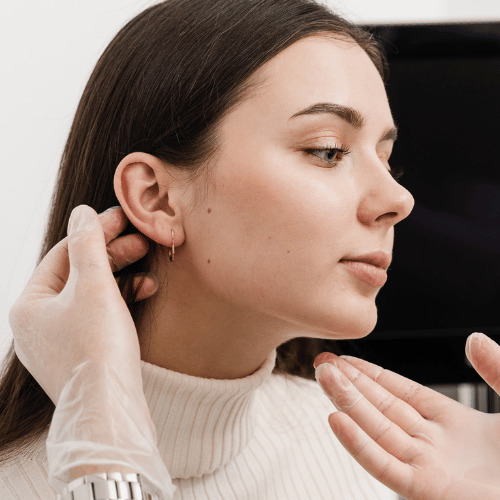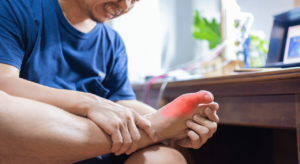
Why Testing AMH Levels Could Be Key to Early Fertility Planning
If you’re thinking about trying for a baby, considering IVF or natural conception, wondering whether now is the time to
Conditions > Outer Ear Infection
An outer ear infection, or otitis externa, is an inflammation or infection of the outer ear canal.
This type of infection is often referred to as “swimmer’s ear” because it commonly occurs when water remains trapped in the ear canal, creating a moist environment conducive to bacterial or fungal growth.




Outer ear infections can impact individuals of any age, but some groups are particularly at risk.
Young children are especially vulnerable due to the anatomy of their ear canals and their frequent exposure to moisture from activities like swimming. Swimmers are notably prone to these infections as well.
People with chronic skin conditions, such as eczema or psoriasis, or those with allergies that cause inflammation in the ear canal, are also more susceptible.
Additionally, excessive moisture from sweating or using earplugs, along with a history of ear infections, can further increase the risk.


Preventing outer ear infections requires careful attention to ear hygiene and avoiding behaviours that can lead to infection.
To keep your ears dry, minimise prolonged exposure to water and thoroughly dry your ears after swimming or bathing. If you swim frequently, using earplugs can help keep water out of your ears.
When cleaning your ears, gently use a washcloth on the outer ear but refrain from inserting anything into the ear canal to prevent damage and reduce the risk of infection.


For persistent or severe outer ear infections, more advanced treatments may be necessary. In some cases, professional cleaning of the ear canal is required to remove debris and discharge.
If infections do not respond to topical treatments, oral antibiotics or antifungals might be prescribed. Chronic infections could also indicate an underlying condition such as eczema or diabetes, necessitating a comprehensive evaluation to address the root cause.


Our team of specialists can help you get the best possible treatment for your outer ear infection. Come to see us if you are suffering from an existing infection, would like to discuss recurrent infections, or have any questions or concerns. Give us a call or use our online booking system to make an appointment today.
We work with experienced consultants & healthcare professionals who have received positive feedback from our patients, and with whom we have established long-term relationships.
Use our online booking engine or book your test by giving us a call.
On the online booking engine select the “appointment type” you need.
You will be seen by one of our friendly doctors or trained clinicians.
Latest Episode
Tune in to our podcast to explore the world of healthcare and learn from distinguished special guests. We cover everything from preventative measures to cutting-edge treatments so that you can stay informed and up-to-date on health-related things.

If you’re thinking about trying for a baby, considering IVF or natural conception, wondering whether now is the time to

If you travel to London, you may wonder how to access medical care while here. It can be unclear, as

Elevated uric acid is one of the most common findings when patients do a routine blood test with us. This
Subscribe for latest updates & news


From same-day private GP and blood test appointments to visa medicals, a sexual and reproductive health clinic, and preventative health screenings, we are here to help.
Contact Us
Accepted Insurance Companies






Please note that Walk-in Clinic is a private medical centre & not an NHS service. Harley Walk-in Clinic Ltd company registration no. 07472804